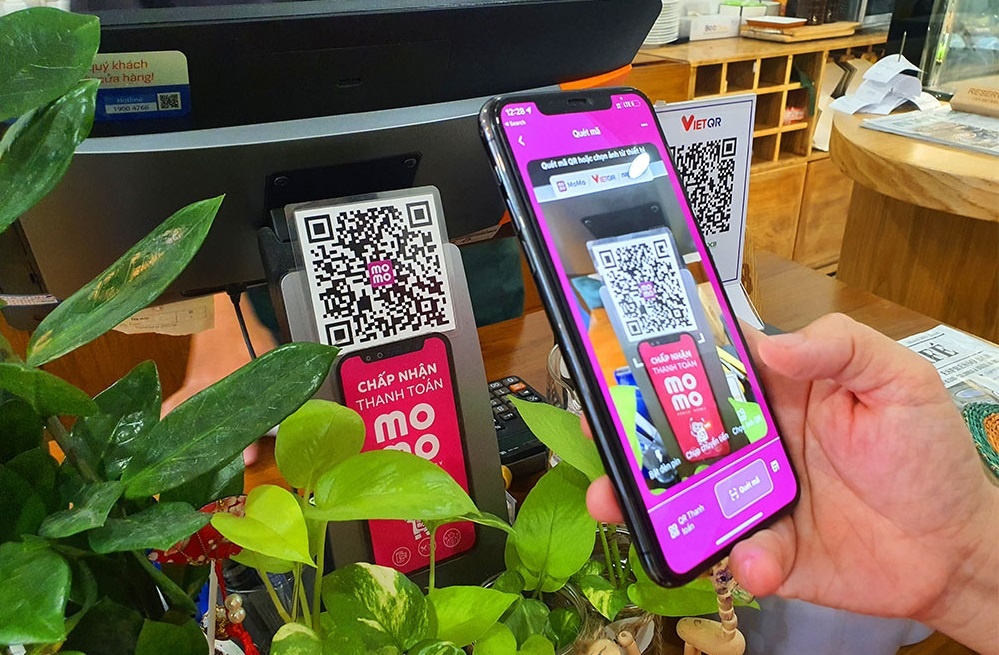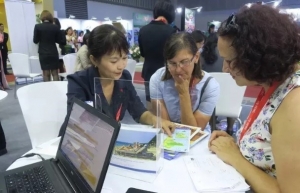Optimism rises for fintech development opportunities
Vietnamese e-wallet MoMo has partnered with Apple to introduce Apple Installments, which allows users to own Apple products through flexible payment plans ranging 6-24 months. The US tech giant launched an online store in Vietnam in May.
 |
| Optimism rises for fintech development opportunities, illustration photo/ Le Toan |
Do Quang Thuan, senior deputy director in charge of financial services at MoMo, said, “As we seamlessly integrate into the online Apple Store, we present Vietnamese users with an unparalleled range of payment options. It’s a gateway to unlocking their dreams of Apple ownership while maintaining a firm grip on their financial equilibrium.”
The landscape has become increasingly competitive in Vietnam, driving innovation and advancements in digital payment solutions.
Breaking new ground in the Vietnamese market, MoMo is also the first local partner to offer cashless payment options for YouTube Premium. The strategic collaboration brings added convenience and flexibility to Vietnamese YouTube users, allowing them to access premium content and enjoy a hassle-free payment experience.
In January, Grab and ZaloPay unveiled their official partnership to integrate a novel payment solution leveraging ZaloPay directly within the Grab app. The collaboration marks a pivotal step towards enhancing convenience and efficiency for users, while reinforcing the competitive edge of both companies in the ever-evolving landscape of cashless transactions.
According to a recent report by Decision Lab, as of Q1 of 2023, MoMo remains the dominant player in the e-wallet market in Vietnam. It currently holds the highest market share in Vietnam at 68 per cent, followed by ZaloPay at 53 per cent, Viettelpay at 27 per cent, ShopeePay at 25 per cent, VNPay at 16 per cent, and Moca at 7 per cent.
MoMo currently has around 31 million users, while ZaloPay continues to expand its user base and ecosystem, reaching approximately 11.5 million payment users in 2022.
Earlier this year, Pham Anh Tuan, payment director at the State Bank of Vietnam (SBV), said that it has granted licences to 45 entities providing e-wallet services to date.
CEO of JobHopin, Kevin Tung Nguyen, assessed the potential of fintech companies in Vietnam. “The Asian Development Bank currently recognises Vietnam as the most promising market in the Southeast Asian region. With this positive outlook, it is highly likely that Vietnamese fintech companies will have the opportunity to attract foreign investments amounting to over $18 billion by the end of 2024,” he revealed.
Furthermore, Nguyen added, fintech investors from Indonesia and Singapore are actively seeking partnerships in Vietnam. These investors have included Vietnam in their strategic plans for budget allocation, user development, recruitment, and investment in sectors such as lending and insurance. They view Vietnam as the most promising market, characterised by rapid growth and high profitability potential, with relatively lower investment costs.
“The primary focus for fintech companies in the financial sector at present should be customer retention rather than allocating excessive advertising budgets to acquire new customers. Retaining existing customers is crucial for long-term success and can be achieved with less financial burden compared to constantly attracting new customers,” he noted.
Despite some progress, the absence of a regulatory sandbox poses a challenge for fintech ventures seeking to test their groundbreaking ideas in a controlled environment.
Deputy Prime Minister Le Minh Khai, during the event commemorating Digital Transformation Day in the banking industry in mid-May, urged swift action from the SBV in finalising the long-awaited decree on cashless payments and the decree pertaining to the controlled testing mechanism or sandbox specifically tailored for fintech operations within the banking sector.
Last week, Pham Trong Nghia, member of the National Assembly Social Affairs Committee, highlighted the government’s proactive stance in fostering development of a controlled testing mechanism for fintech activities. However, Nghia pointed out that despite this commendable effort, the official enactment of this pivotal mechanism is still pending.
Nghia urged prompt engagement in discussions and stressed the importance of incorporating it into the legislative programme. “Such inclusion would enable the swift introduction of a comprehensive law or resolution. By doing so, Vietnam would offer clear guidelines for the establishment of industry- and sector-specific sandboxes,” Nghia said.
 | Fintech enterprises deploying innovative e-wallet initiatives to capture fair share A wide variety of innovative payment systems are expected to assist Vietnam in moving closer to its objective of achieving financial inclusion and a cashless society in the not-too-distant future. However, there will be fierce competition. |
 | Visa event showcases fintech partnerships Visa hosted the “New Flows Client Forum”, welcoming clients and partners looking to learn more about the company's solutions and formidable fintech partnerships, and how these can positively support the growth of Vietnam's small- and medium-sized enterprises (SMEs). |
 | ADB, Switzerland grant 5 mln USD to support Vietnam improve fintech The Asian Development Bank (ADB) and Switzerland have signed a cofinancing agreement of up to 5 million USD to develop financial technologies (fintech) that can help address low financial inclusion in Vietnam, particularly among small and medium-sized enterprises (SMEs). |
What the stars mean:
★ Poor ★ ★ Promising ★★★ Good ★★★★ Very good ★★★★★ Exceptional
 Tag:
Tag:
Related Contents
Latest News
More News
- Raised ties reaffirm strategic trust (February 20, 2026 | 14:06)
- Sustained growth can translate into income gains (February 19, 2026 | 18:55)
- The vision to maintain a stable monetary policy (February 19, 2026 | 08:50)
- Banking sector faces data governance hurdles in AI transition (February 19, 2026 | 08:00)
- AI leading to shift in banking roles (February 18, 2026 | 19:54)
- Digital banking enters season of transformation (February 16, 2026 | 09:00)
- IFC to grant $150 million loan package for VPBank (February 13, 2026 | 09:00)
- Nam A Bank forms position as strategic member at VIFC through three key partnerships (February 12, 2026 | 16:39)
- Banks bolster risk buffers to safeguard asset quality amid credit expansion (February 12, 2026 | 11:00)
- VNPAY and NAPAS deepen cooperation on digital payments (February 11, 2026 | 18:21)





















 Mobile Version
Mobile Version